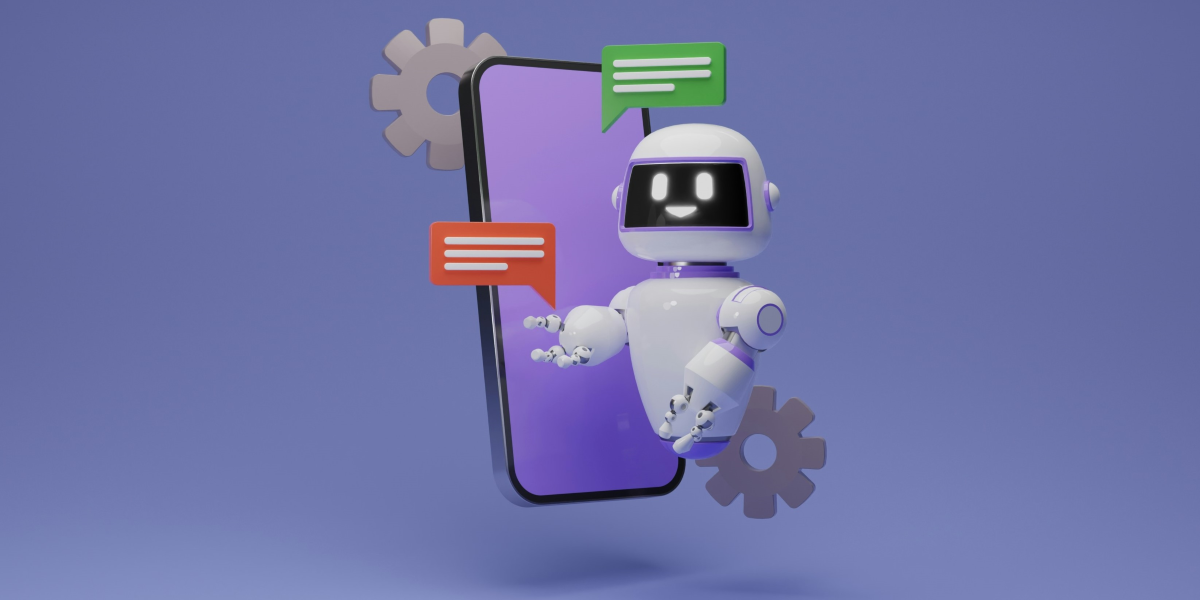Chatbots have evolved from simple virtual assistants to powerful tools, reshaping the business landscape. In office environments, they streamline processes, enhance productivity, and offer round-the-clock support. As companies adopt artificial intelligence (AI) technologies, chatbots are essential in improving workplace efficiency and driving business success.
What Are Chatbots?
Chatbots are AI-powered programs designed to simulate human conversation. By understanding and processing language, they can respond to user inquiries, provide solutions, and complete specific tasks.
Depending on their complexity, chatbots range from basic rule-based bots that handle straightforward commands to advanced AI-driven bots capable of understanding context and learning over time. These tools are utilized in various industries, including customer service, human resources, and IT support, where they reduce the need for direct human intervention.
When Did Chatbots Start Appearing?
The concept of chatbots originated in the 1960s with the development of ELIZA, a simple program that used text to engage in basic conversations. However, it wasn’t until the 2010s that chatbots became more sophisticated, thanks to advancements in machine learning and natural language processing (NLP).
Chatbots evolved from novelty items into practical business tools by integrating with popular messaging platforms and leveraging AI. Today, they’re commonplace in office settings, where they handle tasks that improve operational efficiency and customer interactions.
Key Impacts of Chatbots in the Modern Workplace
The following are the potential of chatbots in the office. Remember that while modern tools can help with tasks, they do not solve the issue entirely. Otherwise, businesses would rely upon them without any human intervention.
1. Streamlining Administrative Tasks
Though essential, administrative tasks often consume time employees could spend on strategic initiatives. Chatbots excel in handling routine tasks, such as scheduling meetings, managing data entry, and answering frequently asked questions.
By automating these duties, chatbots free up time for employees to focus on high-impact work. Moreover, these AI assistants can operate around the clock, ensuring no delays due to human limitations.
2. Enhancing Employee Support and Engagement
Chatbots provide HR departments with a reliable resource for employees seeking assistance with benefits, payroll, or policy questions. These virtual assistants can offer instant, accurate responses, improving employee satisfaction and reducing the workload for HR staff.
Chatbots can also conduct surveys and gather feedback, enabling organizations to gauge employee morale and make informed improvements. This capability makes them invaluable in fostering a supportive workplace culture.
3. Driving Efficiency in IT Support
IT departments frequently deal with many queries about simple issues like password reset or software troubleshooting. Chatbots can handle these routine inquiries efficiently, directing more complex issues to IT professionals.
This automation helps maintain workflow continuity, minimizes downtime, and ensures that IT resources are allocated to tasks requiring human expertise. As AI technology advances, chatbots are expected to manage even more sophisticated IT tasks, further boosting workplace productivity.
4. Customer Service: Improving Response Times and Customer Satisfaction
Many companies use chatbots to enhance customer service within the office by managing client inquiries and support tickets. Bots can instantly respond to basic questions, redirecting complex cases to human representatives.
This hybrid approach optimizes response times and improves customer satisfaction, as clients experience shorter wait times and quicker resolutions. Integrating chatbots into customer service workflows offers a competitive edge for businesses relying on high customer satisfaction.
5. Future Prospects: Chatbots as Strategic Assets
The future of chatbots in the office is promising, even though it is not fully realized. As they become more advanced, chatbots may evolve to perform complex tasks requiring a nuanced understanding of context and language.
Potential applications include personalized training programs, assisting in data analysis, and even supporting strategic decision-making. By automating sophisticated functions, chatbots can empower employees to excel in roles that demand creativity, critical thinking, and interpersonal skills.
Challenges and Considerations
While chatbots offer numerous benefits, businesses should be aware of potential challenges to ensure smooth implementation and compliance with regulatory standards.
1. Data Privacy and Security
As chatbots handle sensitive information, ensuring data privacy and security is crucial. Businesses must comply with data protection regulations and implement safeguards to protect employee and customer information. Failure to secure chatbot systems could lead to data breaches, risking legal consequences and customer trust.
2. Limitations in Complex Scenarios
Although chatbots handle routine tasks well, they may struggle with complex inquiries requiring human judgment. Organizations should recognize the chatbot’s limitations and have escalation protocols to seamlessly transfer challenging cases to human staff. Balancing chatbot use with human support ensures customer and employee satisfaction without sacrificing service quality.
3. Risk of Over-Automation
Over-reliance on chatbots can reduce personal interactions, which may negatively impact employee morale or customer loyalty. Companies should strike a balance, using chatbots for repetitive tasks while preserving human touchpoints for interactions that benefit from empathy and nuanced communication.
Embracing Chatbots: A New Era of Workplace Efficiency
The integration of chatbots into the workplace signifies a shift towards a more efficient and responsive office environment. By taking on routine tasks, supporting IT and HR departments, and enhancing customer service, chatbots allow employees to focus on value-driven activities. As AI continues to evolve, chatbots will play a critical role in shaping the future of work, making them an asset for any forward-thinking organization.
Published by: Annie P.














